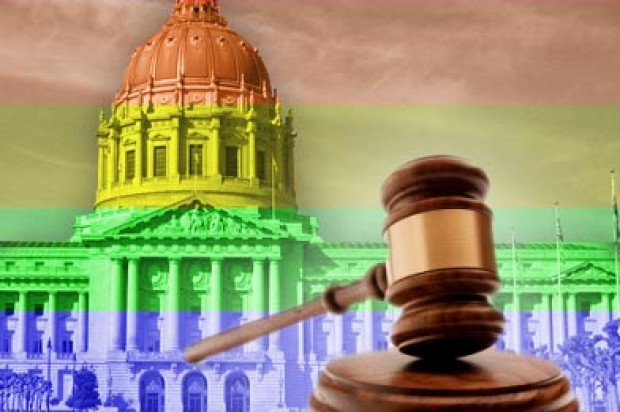
A group of San Francisco drag queens who were locked out of their Facebook accounts in recent weeks because they didn’t use their legal names received an apology today from Facebook.
Chris Cox, the chief product officer at Facebook apologized to the community of drag queens, drag kings, transgender, and members of the LGBT community impacted by the recent real-name policy issues via a post on the social media site today.
Cox said in the post, which was “liked” by Facebook’s chief executive officer Mark Zuckerburg, that the company has come to understand how members of the Facebook community suffered as a result of the real-name policy and promised the company is “going to fix the way this policy gets handled.”
The apology comes weeks after a group of drag queens and members of the LGBTQ community, including San Francisco Supervisor David Campos, met with Facebook officials at San Francisco City Hall to discuss the far-reaching implications of the social network’s policy against pseudonyms and to urge the tech giant not to lock people out of their accounts should they choose not to use their legal names.
San Francisco drag queens including Sister Roma, Heklina, BeBe Sweetbriar and Lil Miss Hot Mess protested the crackdown on profile names and demanded Facebook update its decade-old policy.
The drag queens said that in recent weeks they had all been kicked off their accounts and could only regain access if they listed their legal name, such as one on a driver’s license or credit card.
The drag queens said the policy would “out” people who prefer to use alternate names “to ensure their safety and privacy,” including abused and battered women, bullied teens, political activists and sex workers.
Sister Roma has said she doesn’t believe Facebook targeted the drag queens, but somehow their accounts were flagged and brought to the attention of Facebook, which then enforced its policy.
Cox said the real-name policy, “on balance, and when applied carefully, is a very powerful force for good,” but he also noted that when an individual on Facebook reported several hundred accounts as fake, Facebook didn’t notice the pattern. That’s because, Cox said, those reports were mixed in with the several hundred thousand fake name reports which the company processes per week.
Cox said the spirit of Facebook’s policy “is that everyone on Facebook uses the authentic name they use in real life. For Sister Roma, that’s Sister Roma. For Lil Miss Hot Mess, that’s Lil Miss Hot Mess.”
He said this event highlighted “lots of room for improvement in the reporting and enforcement mechanisms, tools for understanding who’s real and who’s not, and the customer service for anyone who’s affected.”
Cox said the mechanisms have not worked flawlessly and that the company needs, and wants, to fix that.
He said Facebook is already underway trying to build tools to better authenticate people while not opening up Facebook to trolls, bullies and dangerous users.
He said better customer service would also be provided to those accounts that get flagged, so that they can appeal the process and prevent the shut down of their accounts.
Following today’s apology, Assemblymember Tom Ammiano appluaded Facebook’s decision to clarify and update its policy regarding stage names for pages used by drag performers.
“I’m glad they came to understand that this issue was not just a question of creating a persona for drag performers,” Ammiano said.
Among those who have discussed the problems with Facebook’s real-name policy was Nadia Kayyali, an activist with San Francisco-based non-profit Electronic Frontier Foundation.
She said social media sites such as Twitter, Reddit and Google Plus don’t require their members to use their legal names, and that Facebook, with some 1.4 billion users, has potential to hurt a lot of people if they continue to enforce their policy regarding use of not only stage names, but pseudonyms as well.
Kayyali said the repercussions of Facebook enforcing the policy in a country such as Syria, where citizens live under the rule of an authoritarian regime and the authority of rogue groups, would be devastating for political activists and dissidents who fear for their lives and often use a false name to express their opinions and organize with other dissidents.
Hannah Albarazi, Bay City News









